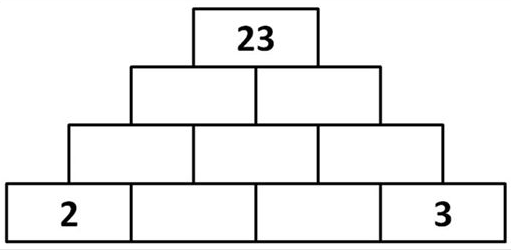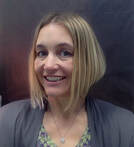|
For the past five years, I've called Saudi Arabia my home. Before that, home was China and prior to that, it was India. My summer home in the U.S. is in beautiful, Ithaca, New York. As an international educator and now international educational consultant, I couldn't imagine home looking any other way. I grew up in Orefield, Pennsylvania. Unlike my own children, I attended the same school district from grades K-12. I didn't get on an airplane until I was 18 years old. I return to Orefield once a year to visit my father, who still lives in the same house where I grew up. I also catch up with "old" friends. This past summer, I was fortunate enough to meet up for coffee with one of those friends who teaches middle school math. In fact, she teaches at the same school where she and I first became friends over thirty years ago! Our friendship is deep and has weathered the course of time and distance. Relationships like this are special and unique. We talked about my new consulting business and she shared how she was looking for ways to reinvigorate her math teaching after 24 years in the classroom. I shared a few of my favorite resources and articles and pointed her in the right direction of a few more. We texted a few times at the start of the school year as she delved into the resources I shared. In early October, she posted this on her Facebook page: Yesterday I gave one of my classes this prompt and nothing else. No directions, no instructions, no rules. I handed out the prompt, told them they could form groups and see what they could come up with. Before I even finished handing out the papers, I got a "Is this graded?" At first there was frustration and confusion. Students were stunned. "What are we supposed to do?" It didn't take long for some to start to make observations, to ask questions and to "solve" the problem. One group was shocked when they came to me to share that they solved it and I told them to keep going. Keep going? Isn't there only one right answer? Are we right or wrong? Today we started by sharing our questions, observations and "answers" to the prompt. Then the magic really began. Groups started exploring patterns. Students tested their theories, changed the "rules" and tested some more. The bell rang and we all left wanting more. The energy, conversations and excitement was incredible. Many students told me I should start a club like this because they enjoyed it so much. Some may say I "lost" two days of instruction with my Algebra I class and anyone in education knows how important those days are with looming Keystone Exam dates. I personally consider these past two days priceless. Thank you to an incredible math instructor, coach and friend for helping me to re-energize my math self. Thank you, Nicole Fedio. These are the moments in coaching relationships that matter. What made this relationship particularly easy is that my friend and I had decades of history together where we could be vulnerable with one another. The number one priority when I am working with a teacher is our relationship. If our coach-teacher relationship is not a mutual one of respect and openness, then as a coach, I am "dead in the water."
What I find most interesting about my conversation and subsequent texts with my friend is that from my perspective, I don't feel like I did much, other than encouraging her and pointing her in the right direction. SHE is the one who decided to take a risk with her students. SHE is the one who watched videos, read the articles, and follow the links I shared. SHE is the one doing the heavy lifting. I am simply a guide on side, simultaneously learning from her. Magic happens when coaches and teachers are able to find that "sweet spot" of working together. How can these relationships be cultivated and maintained when there isn't 30 years of history between the coach and teacher? I my opinion, it's vulnerability, openness, and a true passion for learning. Thank you, Melissa, for sharing your awesome work with me.
3 Comments
 Image from: http://www.cambridgeblog.org/2019/08/information-overload-in-the-legal-sphere/ Image from: http://www.cambridgeblog.org/2019/08/information-overload-in-the-legal-sphere/ Bar Models, open middle, three-act math tasks, esti-mysteries, numberless word problems, rich tasks, number talks, unit chats, which one doesn’t belong’, choral counting, Desmos, GeoGebra, Youcubed… What have I missed? This list goes on and on. I know there are other great resources out there that I could have mentioned. Does this list start to make you feel a little like the picture above? Some days it does to me. The educators who have created these mathematics resources are an amazing group of people who I follow on Twitter. I am continually awed by their ability to create meaningful material that inspires teachers around the globe. What’s especially wonderful about these resources is that they are all free and readily available to teachers with a quick Google search. What's not so wonderful is that there really isn't such a thing as a "quick Google search" when it comes to lesson planning. If some of these names are new to you (What in the world is choral counting?) it can be very daunting to try them out with your students. It’s very easy to suffer from information overload, especially in the world of Twitter and other social media. Information overload can cause us to be paralyzed. AAHHHH… there’s just too much out there…. it’s easier for me to just keep doing what I’ve always done. Where can I even start? If you feel this way, you are not alone. Where to begin? Start small. Are your students struggling to learn multiplication facts? Look at youcubed for some resources. Try a multiplication number talk. Pick one new resource to try, and stick with it. And give yourself grace, the implementation dip is real. Ask your colleagues or coach for feedback. If you are fortunate enough to work at a school with a learning coach, invite them into your classroom. If you don’t have a coach, try something like an observe me protocol to invite feedback from colleagues. Let go. This is one of the most challenging things about trying new things as an educator. Experience is both a blessing and a curse. If I’ve successfully taught a topic the same way for many years, why should I try to teach it a new way? My answer to that is Why not? What is holding you back? Two high school teachers I worked with last year were amazed at the quality of projects their 9th grade students independently created using Desmos. What did the teachers do differently? They let go of their thinking that they needed to teach the material the way the textbook did. The students met the same learning objective, but in a different way. Sifting through the sheer number of math resources out there takes a lot of time. Time is a limited resource for most educators. Want to try something new but don’t know where to begin? Reach out to me via email or the comments section to get started. links to these resources can be found here: Bar Models, open middle, three-act math tasks, esti-mysteries, numberless word problems, rich tasks, number talks, unit chats, ‘Which One Doesn’t Belong’, choral counting, Desmos, GeoGebra, Youcubed |
Nicole FedioMathematics Consultant at Mathematique Archives
February 2020
Categories |


 RSS Feed
RSS Feed
